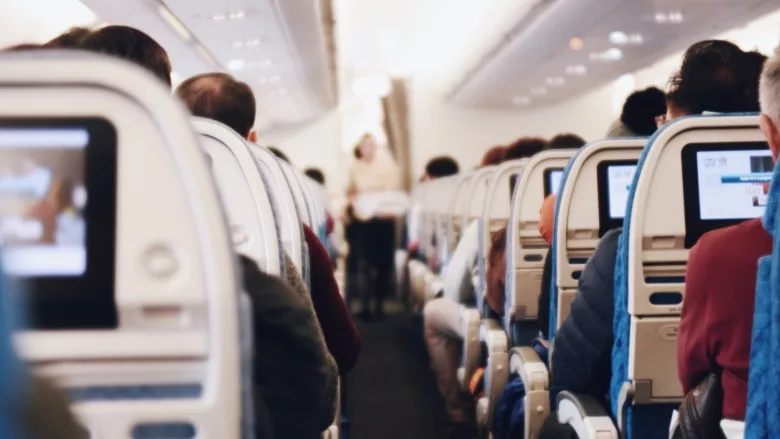Airline fraud: Shoring up defense with advanced analytics & MLOps

Image via Unsplash
Airlines are experiencing an unprecedented rise in fraudulent claims, not only denting profits but also affecting the customer experience. According to a recent report, suspected digital fraud spiked by 52.2% between 2019 and 2021, with travel and leisure being one of the worst-hit industries.
Online payment fraud is rampant across sectors, but the airline industry, in particular, was badly affected. Airlines account for 46% of all online fraudulent transactions. According to the Payment Intelligence Report 2022, airlines lost more than 6.5 billion to fraud in 2021, equivalent to 1.5% of total global airline revenue.
Contending with the growing menace of airline fraud
The Airlines Reporting Corporation (ARC) detected almost 80 instances of unauthorized ticketing in the first seven months of 2021, totaling up to $1.2 million in illegal sales. In addition to ticketing fraud, airlines also battle loyalty-related fraud that entails counterfeit cards and account hacking, to name a few.
Strengthening the guardrails against fraud is more prudent than devoting time and resources to recovering losses. A preventive approach enables significant savings. Besides the direct cost of fraud, airlines also stave off hidden expenses, including operational costs, time spent by customer support teams, the trauma of affected passengers and uncertainties associated with a looming threat.
Combatting fraud intelligently with advanced analytics
The challenge for airlines is that fraud detection has become a moving goalpost, as fraudsters are constantly developing new, innovative methods to evade detection. Best-in-class companies are implementing comprehensive fraud detection and prevention frameworks that include:
- Guidelines to raise the red flag: e.g., it is not a local caller; the cardholder is not the passenger; last-minute travel; several tickets purchased for different routes on different dates with the same card.
- Predictive analytics to assess and rank claims on a fraud score.
- Embedded analytics combining data from different sources to identify claimants linked to known fraudsters.
- Artificial intelligence (AI) and Machine learning (ML) algorithms that encompass text and image analytics to improve the accuracy of the fraud detection engine.
AI-ML algorithms embedded into processes are essential weapons in the battle against criminals, helping airlines adopt an intelligent, automated and resilient approach to fraud prevention.
Driving integration and scale with Machine learning operations (MLOps)
At the core of a fraud detection and prevention system are intelligent data models with deep learning capabilities that evolve and self-improve. Designing an algorithm that accurately identifies false claims is a delicate balance of sifting fraudulent claims from genuine ones to ensure cumbersome and intrusive investigation processes do not impact customer experience.
Yet achieving that goal is easier said than done, as it requires deep technical expertise and an in-depth understanding of airline operations and nuances. For example, to detect fraud in invoices, the deep learning algorithm is trained on a vast amount of data — from structured claims and flight details to unstructured data such as customer voice, speech and image — so the model can contextualize and detect early warning signs. This requires a solid data foundation equipped with robust data pipelines and a mash-up of data sources to automatically pick data, process and cleanse, and feed the algorithm with continuous inputs.
At the same time, since fraudsters constantly try to manipulate the system, feature engineering becomes critical. This process entails data manipulation by analysts and operational managers while designing different hypotheses on fraudulent behavior.
Importantly, airlines would want their fraud detection systems to explain the rationale behind flagging a case for fraud. Typically, high-performance algorithms have lower explanatory power, often leading to the criticism that they are a “black box” flagging fraud without a clear explanation.
With MLOps, organizations can achieve the said imperatives and successfully manage ML programs at scale. Progressive data models in MLOps can address a growing concern among airlines to identify the bad apples and act swiftly.
The ever-looming threat of fraud requires the airline industry to be innovative and forward-looking in its approach to fraud prevention while not sacrificing customer experience. AI-ML algorithms driven by MLOps can help businesses pre-emptively detect fraud and establish an intelligent, self-evolving, automated and scalable process.
Looking for a reprint of this article?
From high-res PDFs to custom plaques, order your copy today!






